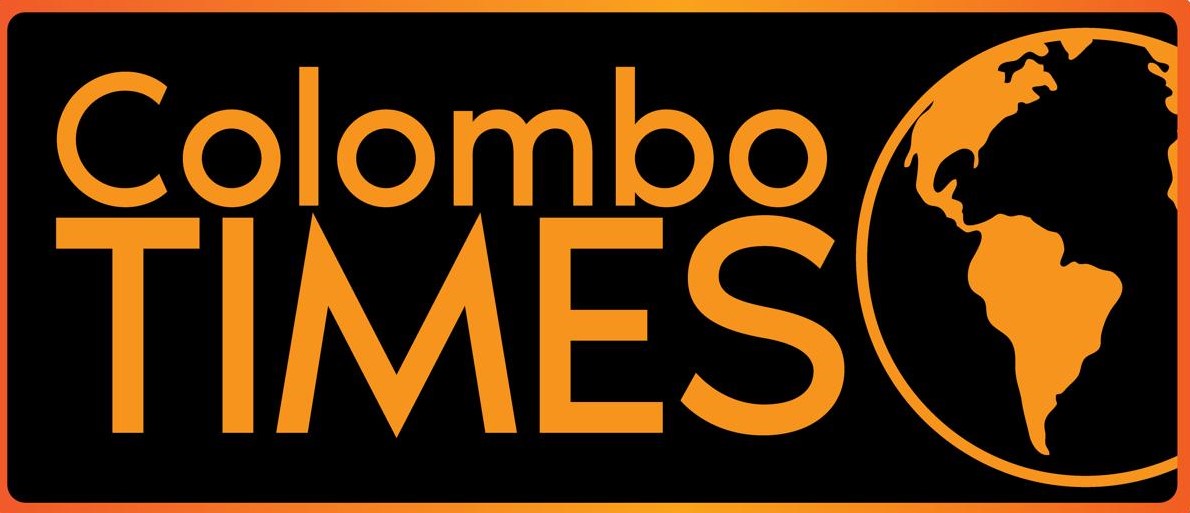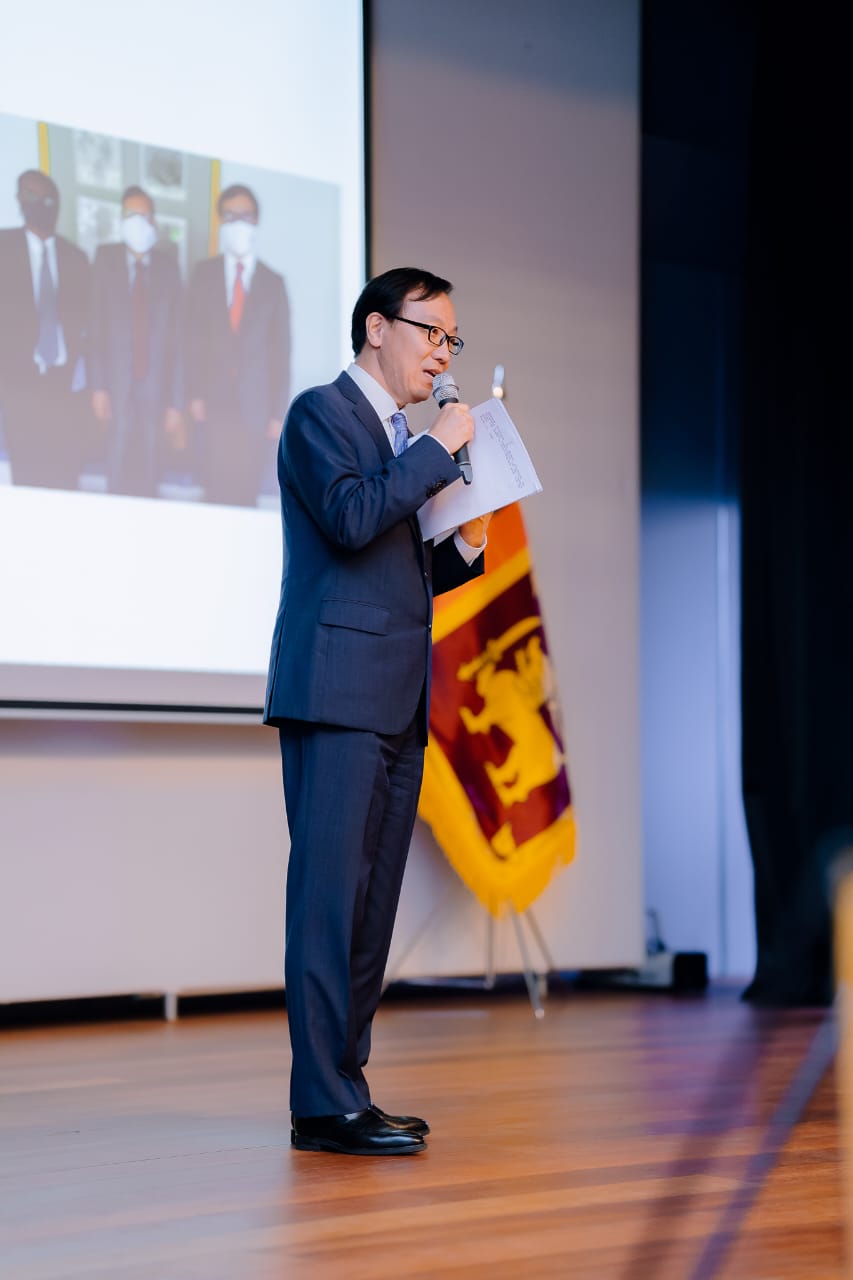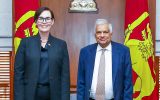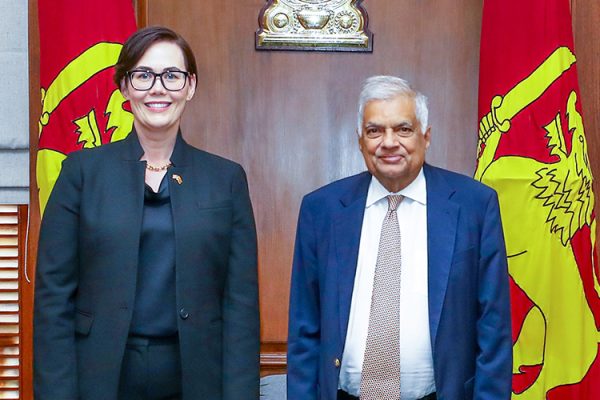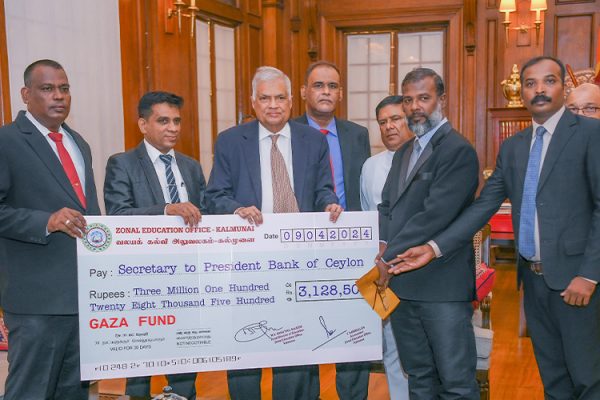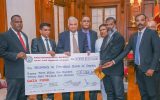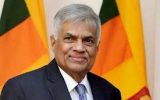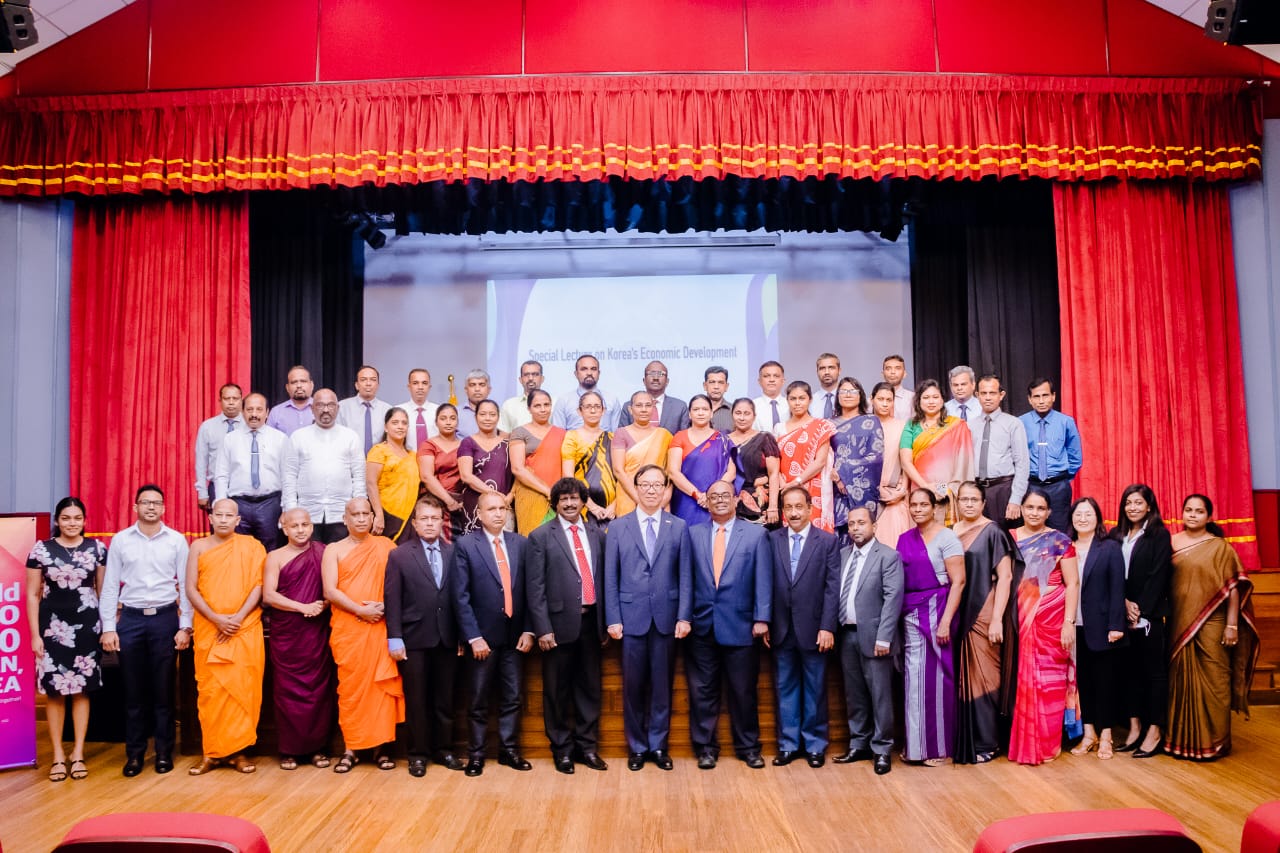
COLOMBO: Korean Ambassador Santhush Woonjin JEONG delivered a presentation on the path of Economic Development in Korea at the National Institute of Education in Maharagama recently.
The Korean Embassy jointly hosted the session together with the National Institute of Education led by the Director General of NIE, Dr. Sunil Jayantha Nawaratne. The Korean Envoy shared many insights and information on Korea’s development that inspired the educated audience.
The Director General of NIE, Dr. Sunil Jayantha Nawaratne in his welcoming remarks thanked Ambassador Santhush for collaborating with NIE on strengthening the educational cooperation between the two countries. ‘Thanks to the Korean Envoy and the Korean Embassy, the capacity-building training programme for teachers was completed with great success. Also, the Korean language is now adopted in the advanced level curriculum as a foreign language and will be introduced for university entrance examinations by 2023 in Sri Lanka. This is a remarkable achievement. I highly appreciate the excellent services of Ambassador Santhush for the education sector and I hope there will be more student exchanges in the future. Korea is a country that turned its challenges into opportunities and there are many lessons that Sri Lanka can learn from Korea.’
Addressing the gathering, Korean Envoy JEONG said, ‘‘I am pleased to deliver this special presentation at NIE. When I arrived as the Korean Ambassador to Sri Lanka in July 2020, the inauguration ceremony of the ‘online capacity-building programme of the Korean language’ was the first event I attended in Sri Lanka. Since then, the Korean Embassy has closely worked with NIE to achieve exceptional milestones in education cooperation such as the introduction of the Korean language to an advanced level curriculum, Korean language speech contests, voluntary donation of examination papers by Korean residents in Sri Lanka, Quiz on Korea, student and teacher exchanges between Korea and Sri Lanka. Further, labour cooperation is significant between Korea and Sri Lanka. Presently around 25,000 migrant workers live in Korea. I believe learning the Korean language will strongly assist employability in Korea. As we celebrate the 45th anniversary of diplomatic ties between Korea and Sri Lanka this year, I hope the close educational and cultural ties will continue to prosper between our two countries.’
In his special presentation, Ambassador Santhush highlighted the economic development of Korea by sharing the statistics of Korea’s economy today, the history of Korea’s economic development, key drivers of economic development and future growth engines and public policy. According to 2020 statistics, Korea ranks as the tenth highest economy in terms of GDP at USD 1,630.87 billion. Korea’s economic rise solidified as it entered the countries with a population of over 50 million and a GNI per capita of more than USD 30,000 in 2018. In 2021, among the five most innovative economies, Korea Singapore and Switzerland lead the index in the first place. Korea has transitioned from an aid recipient to a donor nation that is now contributing to international society through Official Development Assistance to developing countries, partnering for Green Growth and PKO UN Peacekeeping Operation.
Ambassador Santhush also outlined the Korea’s future growth engines that will propel its development forward. “I am also happy to note that Korea ranks 2nd among OECD nations in R&D spending as a portion of GDP. Korea focuses on scientific research; the Korean government promotes innovations in numerous fields. Korea is also a key contributor to sustainable development by keeping up with trends of the global fourth industrial revolution, such as the transition to the digital economy, green growth with renewable and new energy, and big data, artificial intelligence and biotechnologies, thereby encouraging sustainable development. Environment Safety Governance is the future of growth engine and way forward for the Korean economy.”
While outlining the history of economic development, the Korean envoy further stated, “I would not say that all other developing countries should replicate the exact same path to development as Korea did. I am humbled to say that we remember Korea as one of the poorest countries in the past and today Korea has become a developed country with the help of the international community. Korea is not perfect but its path to development could become an example that other countries could refer to. Korea will continuously contribute to the world by helping other countries in need.”
This event included an interactive Q and A session for participants to clarify questions and learn about the Korean economy and its path to development in depth. The session was fruitful to learn new ways to strengthen Korea-Sri Lanka relations.

